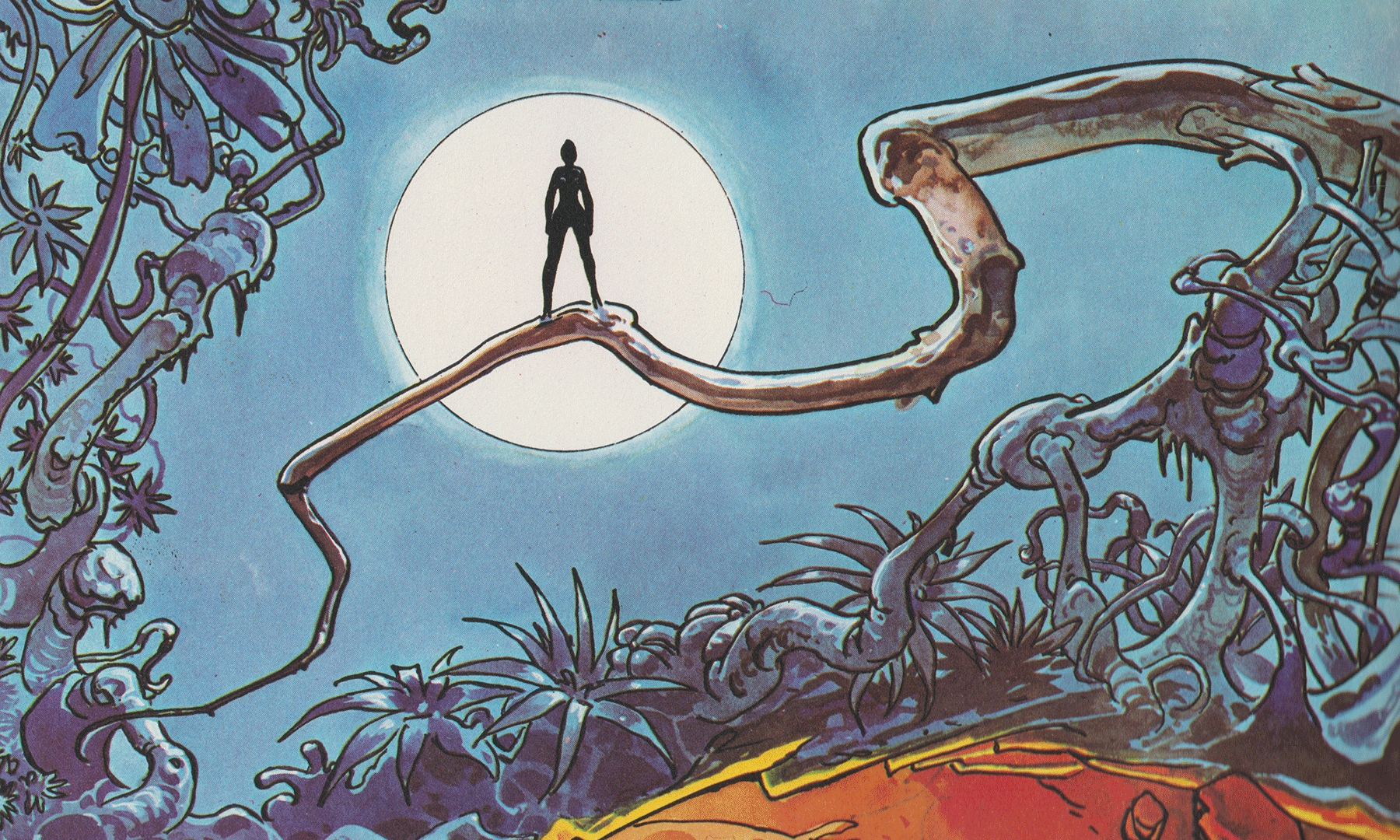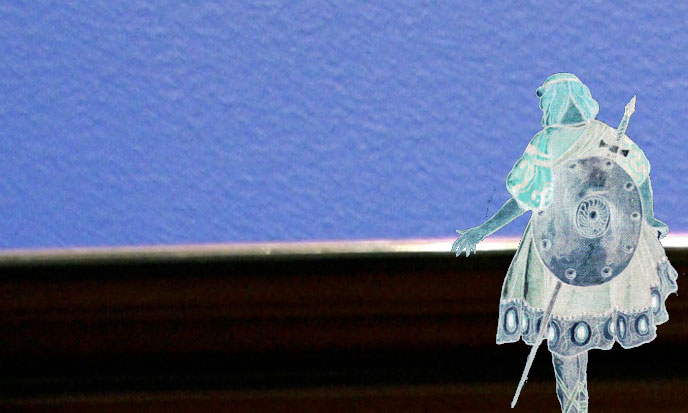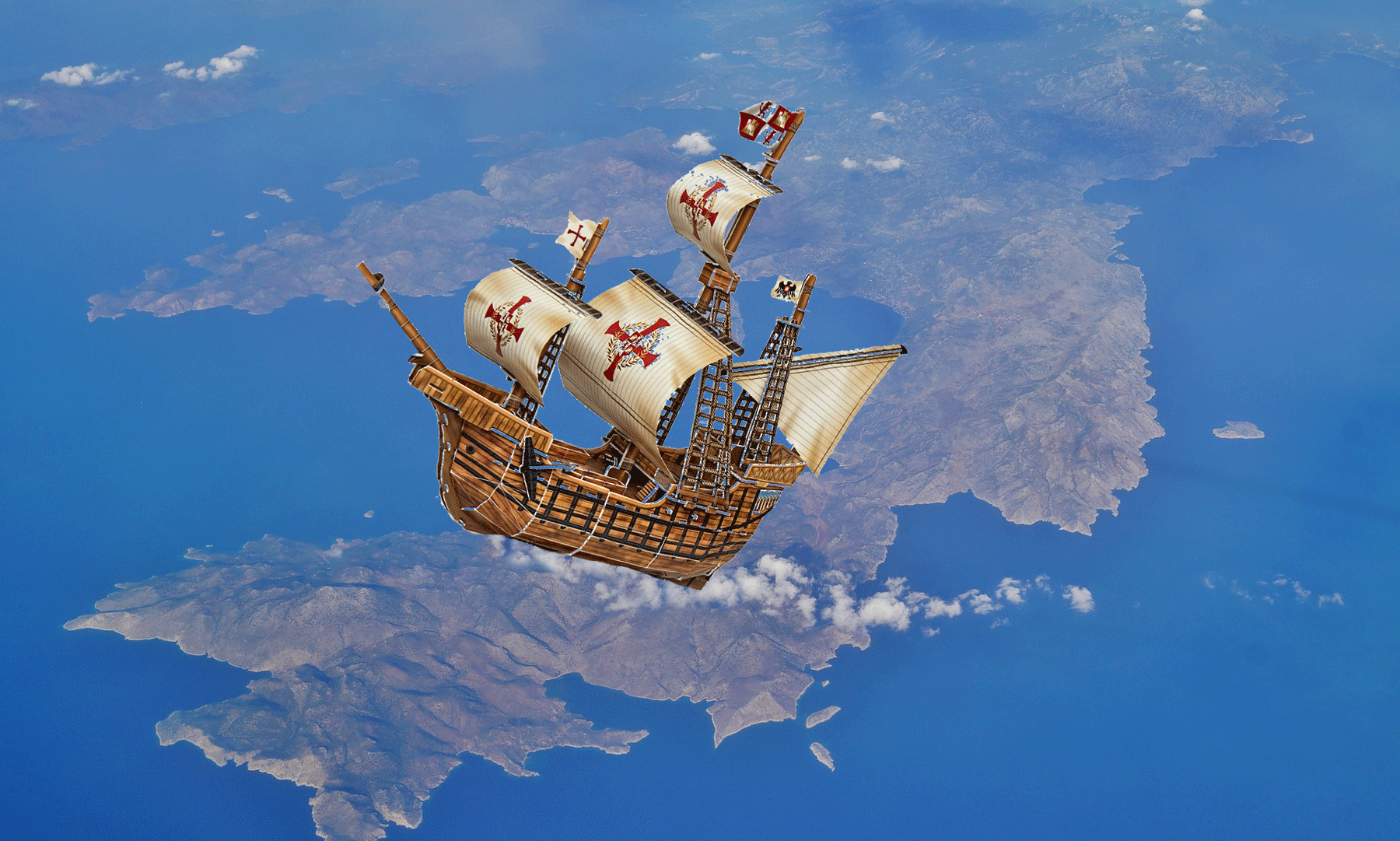
We use to say old Europe as opposed to America, the new world. In fact it is the opposite. North America was civilized and developed long before Europe. But a nuclear disaster left the continent uninhabitable for thousands of years. The natives had to flee forever.
They resolved to cross the Atlantic Ocean and face the wilderness … Sure it was not cheerful. But they had to leave their radioactive homeland. And they couldn’t stay at sea. So they landed in Celtic land. Or rather pre-Celtic!
Yes, the wasteland of what is not yet Europe has something to put off newcomers. Deep forest everywhere. Clans of hunter-gatherers, barbarians and brawlers, flank the combs and prick the females. Our ancestors anyhow. Respect please.
The low forehead, the vague eyes, closer to the monkey than to the man, some are irrecoverable. The others are hardly better. They have forgotten everything about the past, their ancient customs, their traditions, their religions, their culture. They ignore civilization, they are afraid of everything, starting with an invasion of mutants from the sea.
😳
Ten thousand years ago, these advanced populations from America landed on the Atlantic coasts of Europe. Apart from our primitive hunter clans, the continent is deserted. The newcomers know they are being watched by primitives, survivors of the Ice Age and the Flood, who are none other than Indians of Europe, ie Eurindians. Of course, in the memoryless heads of this wild people, the newcomers can only be gods. Eurindians start to adore them, the civilized newcomers let it be. As usual.
😳
On the beaches where their longer boats run aground, whole families and clans dock with weapons and baggage. And their flocks and poultry. Coming from America where they reigned supreme, these people came back to settle in Europe. On Atlantis Island and then in Mexico, they never forgot antediluvian Europe where their Atlantean ancestors had founded many colonies. The great spring of the glacial thaw has just started in northern Europe, almost deserted.
Young Europe
A Brave New World offers itself to the refugees of America. They will soon colonize it.
Let us imagine for a moment the amazement of the rare European natives who see so many elegant women and these refined men coming. To the wild people they were, such a degree of elevation in manners and costume is superhuman. Their modern technology is taken for magic. Think about it! Heroes who sail on sea in metal boats! We would be less shocked facing extraterrestrials …
The newcomers are scholars who know the walk of the stars, numbers, navigation, agriculture, metallurgy, mechanics, aeronautics, and many other techniques, while they are only hunters- gatherers in the state of nature. Absolute culture shock. Of course, savage Europeans took them for gods. Those in the north were called the Sons of the Mother Goddess, or Tuatha. With the help of technicians and Atlantean naguals, they covered Europe with megaliths.

The paradox, for the Atlanteans coming from America, is that our old Europe was their New World. The thaw offered them immense virgin territories to be cultivated, like the American colonists in the 18th century. They even found “Indians” there!
And the America they had just left was their civilized Old World … which had become totally unlivable, and which had to be forgotten for many generations. American settlers inhabited and built Europe for nearly 10 millennia, before values were reversed again on a certain day in 1492.
That day when three walnut shells, three wooden caravels, the Santa Maria, the Pinta and the Nina of Cristobal Colòn appeared on the other side of the Atlantic. This is how Christopher Columbus “discovered” America … while believing he was in India! Indeed history is plagiarized, but the copies are increasingly faint, and no way to change the toner. The decline is progressing rapidly. Until the reverse, it will not get better …
When the Atlanteans land on the coasts of Europe, they find no resistance. And for good reason. The indigenous population is very small: those who survived the Flood had a hard time resisting the Ice Age. Victims of the Mad Max effect, they rediscovered the happinessreally? of the hunter-gatherer …
They live in the interior, at the bottom of caves and temperate undergrounds. Others are in the southern lands. The ancient gods of America try to “domesticate” the natives. It is very likely that these primitives became their slaves … or their pack animals … in the full meaning of the word.
Neo-Atlanteans
Heirs to Atlantis, Americans have kept some of the knowledge from before. They still know how to work metal and polish crystal. They know mathematics and astronomy, which will form the basis of the sciences and techniques developed later by the Celts, Egyptians and Greeks. They also know mechanics and computing, among others.
These divine masters taught European primitives to agriculture, animal husbandry and weaving. Obviously, given the gap, Europeans take them for gods. And work for them without complaining. The “gods” of America know how to make weapons, utensils and tools, precision instruments such as astronomical glasses and navigation instruments – compasses or compasses, chronometers or water clocks, radars, probes, astrolabes, calculators – essential to offshore crossings.
They have fast ships with prodigious engines and metallic hulls with fabulous properties. Heirs to the Atlantean gods, they even have flying machines, like that of King Solomon. In a word, they look like us, while the ancient Europeans look like Cro Magnon …
Many recent discoveries are only rediscoveries. About Christopher Columbus, very few historians still believe that he discovered the Americas in 1492. Thank you Clio!Muse of History
Columbus did not believe it himself, and for good reason: his owners the Templars had given him a map of the Americas, showing the American coast and the Trade Winds sea route across the Atlantic Ocean. How did they possessed such a precious record? Read this.



